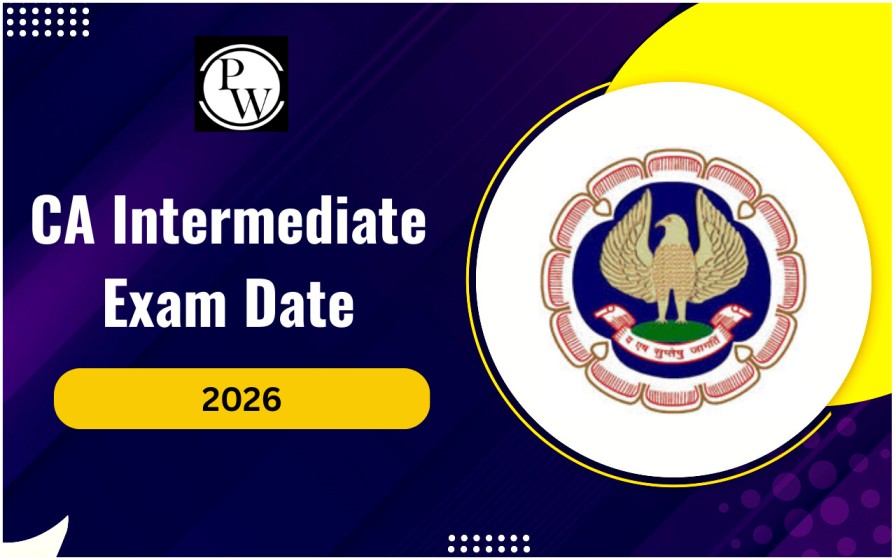
Corporate governance represents a critical component within any organization, serving as the bedrock for ethical operations, transparency, and safeguarding the interests of stakeholders.
In the context of multinational corporations (MNCs) operating within India, corporate governance assumes heightened importance due to the intricate nature of their activities, diverse stakeholder base, and the necessity to comply with international standards. This article talks about corporate governance in MNCs operating in India, shedding light on its historical evolution, fundamental tenets, challenges, mechanisms, case studies, recent developments, and the roles played by stakeholders.Corporate Governance Historical Evolution
Corporate governance in India has a deep-rooted history, tracing its origins back to ancient Indian texts such as the Arthashastra. These ancient writings outlined the responsibilities of rulers and ministers, underscoring the fundamental principles of efficient governance. Nevertheless, the modern framework for corporate governance in India started to develop in the wake of economic liberalization and deregulation in the 1990s. This era ushered in global competition and the attendant complexities for Indian businesses and industries. The regulatory framework overseeing corporate governance in India has also undergone substantial revisions. The implementation of the Companies Act, 2013, introduced numerous provisions aimed at strengthening corporate governance. This included the establishment of the National Company Law Tribunal (NCLT) to address corporate disputes and enhance transparency.Key Principles of Corporate Governance in MNCs
Corporate governance within multinational corporations (MNCs) hinges on a set of fundamental principles that form the bedrock for ethical, transparent, and responsible business conduct. These principles ensure that MNCs operate in a manner that safeguards the interests of their shareholders while also taking into account the well-being of diverse stakeholders and the broader communities in which they operate. Let's delve deeper into these key principles:Transparency and Disclosure
- Financial Transparency: MNCs must maintain precise and comprehensive financial records, offering thorough financial statements. This transparency engenders confidence among investors, creditors, and stakeholders.
- Operational Transparency: In addition to financial disclosures, MNCs should divulge pertinent information about their operations, strategies, risks, and performance metrics. This transparency enables stakeholders to comprehend the overall health and prospects of the company.
- Timely Disclosures: Information must be disclosed promptly, ensuring that stakeholders have access to crucial data when they require it.
Accountability and Responsibility
- Board Accountability: The board of directors plays a pivotal role within MNCs, being responsible for overseeing the company's management, setting strategic objectives, and ensuring adherence to the organization's mission and values.
- Management Accountability: Senior leaders and management groups bear the duty of executing the instructions of the board and formulating operational choices in harmony with the company's enduring objectives.
- Legal and Regulatory Compliance: Multinational corporations are obligated to comply with all applicable statutes and rules, guaranteeing that their activities operate within the legal structure of each region where they establish a presence.
Fairness and Equity
- Fair Treatment of Shareholders: Every shareholder, regardless of their ownership portion, should receive fair treatment and have equivalent access to information and the procedures for decision-making.
- Conflict of Interest Mitigation: Multinational corporations should establish systems to identify and alleviate conflicts of interest among board members, executives, and other stakeholders, ensuring that determinations are rendered in the company's and shareholders' utmost benefit.
Independence of Directors
- Independent Oversight : Independent directors hold a pivotal role in impartial oversight. They do not partake in day-to-day operations and can provide unbiased judgment on matters presented to the board.
- Diverse Perspectives: A board with diversity, comprising directors from various backgrounds and areas of expertise, can contribute to well-rounded decision-making and mitigate groupthink.
Ethical Business Conduct
- Ethical Codes of Conduct: MNCs should establish and enforce codes of conduct that advocate ethical behavior and discourage unethical practices such as bribery, corruption, and fraud.
- Whistleblower Protections: Mechanisms must be in place to encourage and safeguard whistleblowers who report unethical behavior within the organization. Whistleblowing serves as a means to uncover misconduct early and prevent harm to the company's reputation.
Corporate Governance Challenges in MNCs in India
Multinational enterprises (MNCs) operating in India face unique corporate governance obstacles because of the intricacy of their activities, the variety of their interested parties, and the subtleties of the Indian business landscape. It is crucial for these MNCs to comprehend and tackle these hurdles to maintain ethical behavior, transparency, and adherence to both domestic and worldwide norms. Below, we delve deeper into the corporate governance challenges faced by MNCs in India:Cultural and Ethical Differences
- Diverse Cultural Norms: India's diversity encompasses varying cultural norms, languages, and practices. MNCs often grapple with adapting their global corporate culture to harmonize with local customs and traditions, presenting a challenge.
- Ethical Standards: Ethical standards can markedly differ across regions and countries. MNCs must strike a balance between their global code of ethics and local ethical considerations, avoiding scenarios where local practices may clash with global norms.
Legal and Regulatory Complexities
- Complex Regulatory Environment: India's regulatory landscape is multifaceted, featuring numerous laws, regulations, and authorities governing various aspects of corporate governance. MNCs must navigate this intricacy to ensure compliance.
- Frequent Regulatory Changes: Regulatory adjustments in India transpire frequently, making it arduous for MNCs to stay abreast of evolving requirements and adapt their governance practices accordingly.
Dual Reporting Structures
- Local and Global Reporting: MNCs frequently need to report financial and operational information to both Indian regulatory authorities and their global parent companies. Maintaining uniformity in reporting and guaranteeing data accuracy across these dual structures can be time-consuming and intricate.
- Conflicting Priorities: Dual reporting structures may give rise to conflicting priorities between local and global stakeholders, necessitating astute management to ensure alignment with corporate governance principles.
Compliance with International Standards
- IFRS vs. Indian GAAP: MNCs operating within India might adhere to International Financial Reporting Standards (IFRS) for global reporting, while Indian regulations mandate adherence to Indian Generally Accepted Accounting Principles (GAAP). Navigating this dual standard compliance can be complex and resource-intensive.
Cross-Border Transactions
- Transfer Pricing: MNCs often engage in intra-group transactions, including the transfer of goods, services, or intellectual property, across borders. Ensuring these transactions conform to transfer pricing regulations and are devoid of tax evasion can pose challenges.
- Currency Fluctuations: MNCs must effectively manage currency risks associated with cross-border transactions, which can influence financial performance and reporting accuracy.
Data Privacy and Cybersecurity
- Data Protection Laws: India enforces rigorous data protection regulations, requiring multinational corporations to protect customer and employee information. Adherence to these regulations, such as the Personal Data Protection Bill, increases the intricacy of corporate governance.
- Other RIsks: Multinational corporations must safeguard their sensitive data against cyber threats, including data breaches and ransomware attacks. Such occurrences can lead to significant legal, financial, and reputational consequences.
Supply Chain and Sustainability
- Supply Chain Ethics : Ensuring ethical practices throughout the supply chain, involving suppliers and contractors, can be intricate, particularly in industries with complex and global supply chains.
- Environmental Impact : With sustainability emerging as a prominent corporate governance concern, MNCs operating in India must negotiate evolving environmental regulations and address the environmental ramifications of their operations.
Political and Geopolitical Risks
- Political Instability: Political shifts, regional conflicts, and geopolitical tensions can disrupt business operations. MNCs must formulate strategies to manage these risks.
- Trade Relations: Alterations in trade policies and trade disputes involving India can impact the supply chains and market access of multinational corporations.
Stakeholder Engagement
- Managing Stakeholder Concerns: Multinational corporations are tasked with harmonizing the interests of diverse stakeholders, encompassing shareholders, staff, consumers, and the surrounding community.
- Proactive Engagement : Effective stakeholder engagement calls for proactive communication, responsiveness, and the capability to address their concerns promptly.
Corporate Governance Mechanisms in MNCs
Corporate governance mechanisms play an instrumental role within multinational corporations (MNCs), ensuring that these intricate, globally operating entities adhere to ethical standards, maintain transparency, and operate efficiently. These mechanisms are designed to strike a balance between the interests of diverse stakeholders, including shareholders, employees, and the broader community. In the context of MNCs operating in India, where regulatory and cultural diversity compounds the challenge, these mechanisms assume even greater significance. Here are 4 key corporate governance mechanisms employed by MNCs:Board of Directors
- Composition and Independence: The composition of the board of directors constitutes a fundamental facet of corporate governance. MNCs often strive to maintain a diverse board with a blend of independent directors, executive directors, and non-executive directors. Independence is pivotal in ensuring that board members can provide impartial oversight.
- Role and Responsibilities: The board of directors is responsible for setting the company's strategic direction and overseeing its management. Its duties include approving important choices such as mergers, acquisitions, capital investments, and alterations in the corporate framework. Independent directors, specifically, have a vital function in examining and questioning executive judgments.
Shareholder Rights and Engagement
- Proxy Voting: Shareholders in MNCs possess the right to vote on various matters, encompassing the appointment of directors, executive compensation, and major corporate transactions. Proxy voting enables shareholders who cannot attend meetings in person to have their voices heard.
- Annual General Meetings (AGMs): AGMs offer a platform for shareholders to interact with the company's management and board of directors. MNCs must conduct AGMs in accordance with regulatory requirements, allowing shareholders to pose questions and express their concerns.
Auditing and Internal Controls
- External Auditors: MNCs enlist the services of external audit firms to independently verify their financial statements. Auditors ensure that the financial information presented to stakeholders is accurate and aligns with accounting standards.
- Internal Audit: Internal audit teams within MNCs are tasked with conducting ongoing assessments of internal controls, risk management, and compliance. They facilitate the identification of weaknesses and areas for improvement within the organization, contributing to enhanced corporate governance.
Codes of Conduct and Ethics
MNCs often institute comprehensive codes of conduct and ethics that steer employee behavior and decision-making. These codes delineate expectations pertaining to integrity, honesty, and compliance with laws and regulations. Upholding ethical business conduct is imperative for maintaining a robust corporate governance framework.Risk Management
Effective risk management constitutes an integral component of corporate governance. MNCs implement processes for risk assessment and management to identify, evaluate, and mitigate risks that could impact the company's operations or reputation. Risk management is closely intertwined with the board's oversight role.Compliance and Reporting
MNCs must adhere to a myriad of regulatory requirements spanning various jurisdictions. Compliance mechanisms entail ensuring that the company adheres to laws and regulations pertaining to financial reporting, environmental practices, labor standards, and more. Comprehensive reporting mechanisms are essential for keeping stakeholders informed about the company's performance, risks, and compliance efforts. Annual reports, sustainability reports, and financial disclosures are customary components.Whistleblower Mechanisms
Encouraging employees to report unethical or illegal conduct within the organization is imperative. MNCs often establish confidential whistleblower mechanisms that empower employees to voice concerns without fearing reprisals. These mechanisms are instrumental in identifying and rectifying issues at an early stage.Board Committees
Many MNCs establish specialized committees within the board, including audit committees, compensation committees, and governance committees. These committees focus on specific aspects of corporate governance, providing expertise and oversight within their respective domains.Environmental, Social, and Governance (ESG) Reporting
In recent years, there has been a growing emphasis on ESG factors within corporate governance. MNCs are progressively integrating ESG considerations into their governance frameworks, addressing issues associated with sustainability, social responsibility, and ethical practices.Case Studies
To elucidate the importance of corporate governance in MNCs operating in India, let's examine two contrasting case studies:- Infosys: Infosys, a prominent Indian IT services company with a global footprint, has garnered acclaim for its robust corporate governance practices. The company's board predominantly comprises independent directors, and it exhibits a steadfast commitment to transparency and ethical conduct. Infosys serves as an exemplar of how an MNC can excel in corporate governance.
- Satyam Computer Services : In contrast, Satyam Computer Services (now Mahindra Satyam) faced one of the most extensive corporate governance scandals in India's history in 2009. The company's founder and chairman admitted to falsifying financial statements, resulting in a loss of trust among stakeholders and dealing a severe blow to corporate governance within the Indian IT sector.
Recent Developments and Reforms
The regulatory environment surrounding corporate governance in India has undergone rapid evolution. Recent developments and reforms encompass amendments to the Companies Act, revisions in listing regulations, and the embrace of global best practices. Additionally, the emergence of Environmental, Social, and Governance (ESG) considerations as a pivotal facet of corporate governance is prompting MNCs to incorporate sustainability and social responsibility into their operations.Role of Stakeholders
Corporate governance within MNCs is a collective endeavor involving various stakeholders:- Shareholders: Shareholders assume a pivotal role in holding the company accountable through voting and engagement during AGMs.
- Regulators: Regulatory bodies like the Securities and Exchange Board of India (SEBI) and the Ministry of Corporate Affairs oversee compliance with corporate governance standards and enact reforms.
- NGOs and Civil Society: Non-governmental organizations and civil society groups monitor the social and environmental impact of MNCs, advocating for greater responsibility.
- Employees: Employees can influence corporate governance through whistleblowing mechanisms and by upholding ethical standards within the organization.
Future Trends and Outlook
The future landscape of corporate governance in MNCs operating in India is likely to be shaped by several trends:- Emerging Technologies: The integration of technologies such as blockchain and artificial intelligence holds the potential to enhance transparency and accountability in corporate governance.
- Globalization: As Indian companies continue to expand internationally, and foreign MNCs invest in India, the demand for harmonized corporate governance standards will increase.
Corporate Governance Practices in Multinational Corporations FAQs
What are some recent advancements in corporate governance for multinational corporations (MNCs) operating in India?
Recent developments encompass modifications to the Companies Act, revisions in listing regulations, and the incorporation of Environmental, Social, and Governance (ESG) factors into corporate governance practices.
How do multinational corporations (MNCs) navigate cultural variances in their corporate governance strategies within the Indian context?
MNCs operating in India often strike a balance between global corporate principles and local cultural norms by fostering diversity within their boards and adapting policies to align with cultural sensitivities.
What is the significance of independent directors in the mechanisms of corporate governance for multinational corporations (MNCs)?
Independent directors play a pivotal role in offering impartial oversight, assessing executive decisions, and ensuring transparency, thereby enhancing the credibility of corporate governance within MNCs.
How do whistleblowing systems contribute to the realm of corporate governance within multinational corporations (MNCs)?
Whistleblowing mechanisms empower employees to report unethical conduct, facilitating the early detection and rectification of issues, thus bolstering the integrity of corporate governance.
In what ways are emerging technologies such as blockchain and artificial intelligence impacting corporate governance within multinational corporations (MNCs)?
Emerging technologies like blockchain and AI are elevating transparency and accountability in corporate governance by providing innovative solutions for record-keeping, compliance, and reporting.
🔥 Trending Blogs
Talk to a counsellorHave doubts? Our support team will be happy to assist you!

Check out these Related Articles
Free Learning Resources
PW Books
Notes (Class 10-12)
PW Study Materials
Notes (Class 6-9)
Ncert Solutions
Govt Exams
Class 6th to 12th Online Courses
Govt Job Exams Courses
UPSC Coaching
Defence Exam Coaching
Gate Exam Coaching
Other Exams
Know about Physics Wallah
Physics Wallah is an Indian edtech platform that provides accessible & comprehensive learning experiences to students from Class 6th to postgraduate level. We also provide extensive NCERT solutions, sample paper, NEET, JEE Mains, BITSAT previous year papers & more such resources to students. Physics Wallah also caters to over 3.5 million registered students and over 78 lakh+ Youtube subscribers with 4.8 rating on its app.
We Stand Out because
We provide students with intensive courses with India’s qualified & experienced faculties & mentors. PW strives to make the learning experience comprehensive and accessible for students of all sections of society. We believe in empowering every single student who couldn't dream of a good career in engineering and medical field earlier.
Our Key Focus Areas
Physics Wallah's main focus is to make the learning experience as economical as possible for all students. With our affordable courses like Lakshya, Udaan and Arjuna and many others, we have been able to provide a platform for lakhs of aspirants. From providing Chemistry, Maths, Physics formula to giving e-books of eminent authors like RD Sharma, RS Aggarwal and Lakhmir Singh, PW focuses on every single student's need for preparation.
What Makes Us Different
Physics Wallah strives to develop a comprehensive pedagogical structure for students, where they get a state-of-the-art learning experience with study material and resources. Apart from catering students preparing for JEE Mains and NEET, PW also provides study material for each state board like Uttar Pradesh, Bihar, and others
Copyright © 2025 Physicswallah Limited All rights reserved.
Get App









